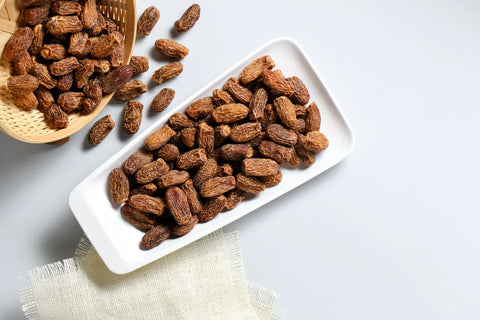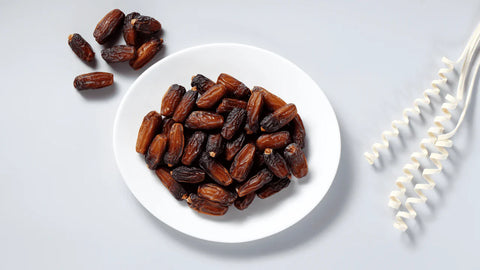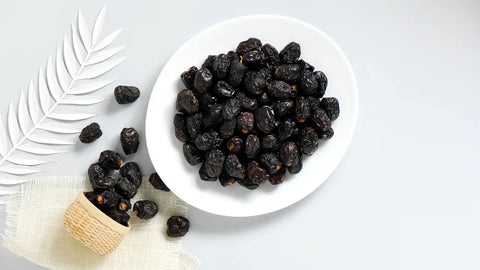All you need to know about Dried Dates
Dried dates are naturally sweet, chewy, and high in important minerals. They are popular all around the world and are high in fiber, vitamins, and antioxidants, making them both delicious and nutritious. They have long been a staple of Middle Eastern and Asian diets, but they are increasingly being cited in modern health trends for their energy-boosting characteristics and role in balanced nutrition.
What Are Dried Dates?
Dried dates have concentrated sweetness and a longer shelf life than fresh dates since they are dehydrated. Because they contain less moisture than fresh dates, they are chewier and have a deeper flavor. They undergo either mechanical dehydration or natural solar drying before being sealed in an airtight container. Popular types include Deglet Noor, which is valued for its nutty flavor and tougher texture, and Medjool, which is recognized for its caramel-like flavor.
Health Benefits of Dried Dates
Dried dates are high in essential nutrients, including fiber, vitamins, and minerals, which improve general health. Their natural sugars provide an immediate and prolonged energy boost, making them ideal for athletes and active people. They are high in fiber, which helps digestion, prevents constipation, and supports gut health. Their strong antioxidant content aids in the regulation of cholesterol and blood pressure, making them an ideal snack for heart health. Furthermore, dried dates improve brain function by supplying natural sugars that boost cognitive efficiency. They are high in calcium and phosphorus, which help to build strong bones and lower the risk of osteoporosis. A little serving every day provides numerous health benefits.
How to Incorporate Dried Dates into Your Diet
Dried dates are an ideal snack, providing natural sweetness and energy. Blend them into smoothies, add to porridge or yogurt for extra nourishment, or use them in sweets and baking for a rich, caramel-like flavor. They can improve savory foods like salads and tagines by balancing flavors with a delicate sweetness and chewy texture.
How to Store and Choose the Best Dried Dates
To keep dried dates fresh, store them in an airtight container in a cool, dry place or refrigerate them. Select plump, lustrous dates that are free of crystallization and mold. For the best taste and nutrition, go with organic, preservative-free products. Proper storage keeps their natural sweetness and chewy texture intact for an extended period.
A Sweet Step to Better Health
Dried dates are a nutritious, delicious, and flexible snack high in fiber, vitamins, and natural energy. They add flavor to everything from smoothies to savory foods. Including them in your daily diet improves overall health while fulfilling sweet cravings organically. Enjoy their goodness and live a better, more balanced existence!
FAQ’s
What is the benefits of dry dates?
Dry fruits are rich in fiber, antioxidants, and nutrients like potassium and magnesium. Dates, for example, are a natural sweetener that boosts digestion, energy, bone health, and immunity.
What is the difference between dates and dried dates?
Dates are fresh fruits, while dried dates are dehydrated, concentrating their sweetness and nutrients. Dried dates have a longer shelf life and chewier texture.
How many dried dates can I eat a day?
4-6 dried dates daily are ideal for most people, providing energy and nutrients without excess calories.
What is the GI of dried dates?
Dried dates have a low to medium glycemic index (GI) of around 42–50, making them a suitable snack for maintaining stable blood sugar levels.











